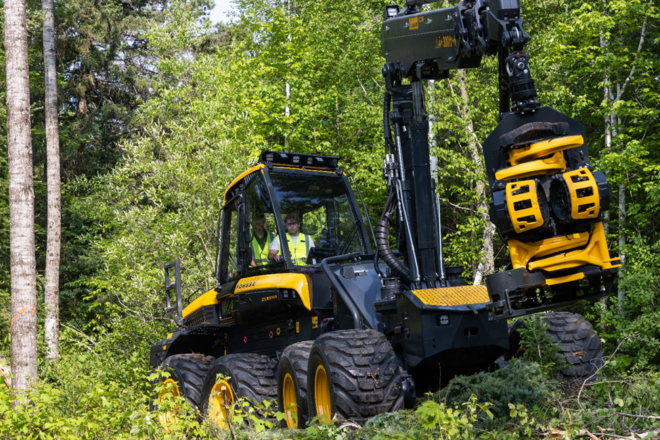FRA Member Profile: Molpus Timberland Group, LLC

Molpus Timberland Group, LLC has been synonymous with timberland management for more than a century. Molpus had its beginnings in 1905 when the Molpus Lumber Company was formed in Meridian, MS. After many years of growth, the Molpus Hardwood Company was established in 1969 to utilize the variety of timber species harvested from a timber harvest. As time moved on, Molpus moved away from lumber production. In 1996, the Molpus Woodlands Group was established as a Timberland Investment Management Organization (TIMO) with its headquarters located in Jackson, MS. In 1999, the Molpus Woodlands Group, LLC was established. The Molpus Woodlands Group manages lands for its clients in 18 states, including Minnesota and Michigan.
In the Lake States Region, Molpus Woodlands Group manages more than 450,000 acres with offices located in International Falls, MN, and Houghton, MI. Craig Halla, Operations Director, North Region, oversees the management of these lands for Molpus clients. Halla has a long history of land management throughout his career. His beginnings were with Boise Cascade before he was hired by Forest Capital Partners, who Molpus purchased Minnesota lands from in 2012. He has been active in managing the Molpus timberlands in Minnesota for most of his career.
“Our goal is to leave the land in better shape than it is today,” said Halla. This is done by incorporating best management practices during timber management and making sure when a site is harvested, it is regenerated to a species best suited to that site. “Managing the forests for the best value is our commitment to our clients, which includes pensions for public service employees,” added Halla.
This commitment to sustainability is clear through the actions of Molpus. In Minnesota and Michigan, Molpus has its lands enrolled in the Sustainable Forestry Incentives Program and the Michigan Commercial Forest Program, respectively. Participation in these programs means that you must manage your lands sustainably and allow the public access to your lands for recreation. Molpus is also third-party certified by the Sustainable Forestry Initiative (SFI). This assures the clients and customers of Molpus that its lands are being well managed for future generations.
The timberlands in Minnesota and Michigan are distinct to their locations. The primary market for the lands in Minnesota is aspen pulpwood, while Michigan is prized for its high-valued hardwoods.
In Minnesota, the timberlands are primarily managed through a multi-year stumpage agreement with the Packaging Corporation of America (PCA), who purchased the Boise Paper Mill in International Falls, MN, in 2016. This agreement provides PCA with a predictable, accessible, SFI certified, and reliable pulpwood supply. Molpus benefits from this agreement by establishing a positive working relationship with one customer to meet its annual timber management goals. The stumpage agreement has been with the International Falls mill location since Boise Cascade sold its Minnesota timberlands in 2005. The current supply agreement expires December 31 of this year and is yet to be renewed.
In Michigan, the Molpus model is somewhat different. The primary goal of the timberlands located in the Upper Peninsula of Michigan is to maximize the value of high-quality hardwoods. Molpus has a 3-year stumpage supply agreement for a portion of its annual harvest volume with JM Longyear, who owns and manages a hardwood sawmill in the northern part of the Upper Peninsula. The remainder of the timber volume harvested is set up by Molpus foresters and these sales are then sold through negotiated timber sales with local logging businesses. The logging businesses then market the timber volume to the processing mills in the area. This business model allows Molpus to capture the highest and best value for quality hardwood stumpage, which benefits its investors.
A challenge for Molpus, as for many other land managers, are the declining markets for the mixed-species that are harvested from any individual tract in the Lake States. Halla points out that even though aspen is in high demand in the Lake States, a typical aspen stand consists of 65% aspen and 35% other species. To maximize the return on a timber tract, all the species need to be utilized. Halla did add that the mills in the region are always looking to utilize different species in their manufacturing process. “We are seeing movement in this area, of mills working to utilize what the forest provides,” said Halla. This is important to Molpus because utilizing all the timber species has been a long-time focus since the company’s establishment in 1905.



